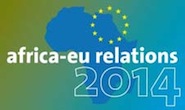The African Union Commission’s Mission to the European Union (EU) hosted a conference in Brussels on 24 May on the African Charter on Democracy, Elections and Governance and the Africa-EU Political Dialogue. Ambassador Emile Ognimba, Director of the Political Affairs Department of the African Union (AU) Commission, Klaus Rudischhauser, Director General of the European Commission’s (EC) Africa, Caribbean, Pacific (ACP) Directorate within DEVCO and Roger Moore, Director of the European External Action Service’s (EEAS) Directorate for East and Central Africa were the keynote discussants. The Africa-EU Platform for Dialogue on Governance and Human Rights was ...
Fokion Fotiadis, Director-General of the European Commission’s DEVCO, gave an advance copy of the new DEVCO organigramme - resulting from the merger of the former DG Development and EuropeAid following the establishment of the European External Action Service (EEAS) - to the European Parliament’s Development Committee on 26 May. The new structure, which includes 50 units and 1,400 officials in EC Headquarters and 3,000 officials in 110 EU Delegations, enters into force on 1 June. Fotiadis explained the reasoning behind the new set-up and its key objectives. In terms of delivery of programmes, there are ...
On the 18th and 19th May, ECDPM hosted the partners currently engaged in formulating the European Development Report 2012. This was a follow-up to previous meetings in London and Brussels and aimed at furthering discussions on the structure and content of the report among whilst also bringing in experts on the topics relating to the title of the report: “Effective Natural Resource Management for Inclusive and Sustainable Growth in the Context of Scarcity and Climate Change”. While this is a broad theme for one report and clearly needs a focal topic and some definitions (not ...
(Version française ci-dessous) When it was signed in 2000, the Cotonou Partnership Agreement between the 79-member African, Caribbean and Pacific (ACP) States and the European Union was widely viewed as offering an ambitious and innovative agenda that would enhance political dialogue, encourage the participation of non-state actors and result in a more effective development cooperation framework. It therefore went beyond the narrow trade and aid focus that was the hallmark of earlier ACP-EU treaties, right from the first post-independence framework agreed in Yaoundé in 1963 through the four successive Lomé conventions implemented between 1975 and ...
On 10 May, the European Commission (EC) put forward its proposal for a new European Union (EU) regulation applying a scheme of generalised tariff preferences (GSP) and will hold a public consultation on this and Economic Partnership Agreements next week. In this proposal, the EU grants trade benefits through the GSP to developing countries in the form of reduced or zero customs tariffs on imports of goods. The EC proposes that the new system concentrate its import preferences on those developing countries “most in need”. ECDPM is preparing a full analysis of the proposal, but ...
A new development paradigm is emerging. There is increasing recognition of the complexity of development and the need for aid and other policies to address global challenges and ensure positive, sustainable development outcomes in developing countries. Emerging economies are also adding a new dynamic that can support and complement the strategies and programmes of the ‘traditional’ donors. But at the same time, donor budgets are under extreme pressure and their focus is on shorter-term, quantifiable, measurable results/impact. In November, government officials and development specialists from around the world will meet in Busan at the Fourth ...

















